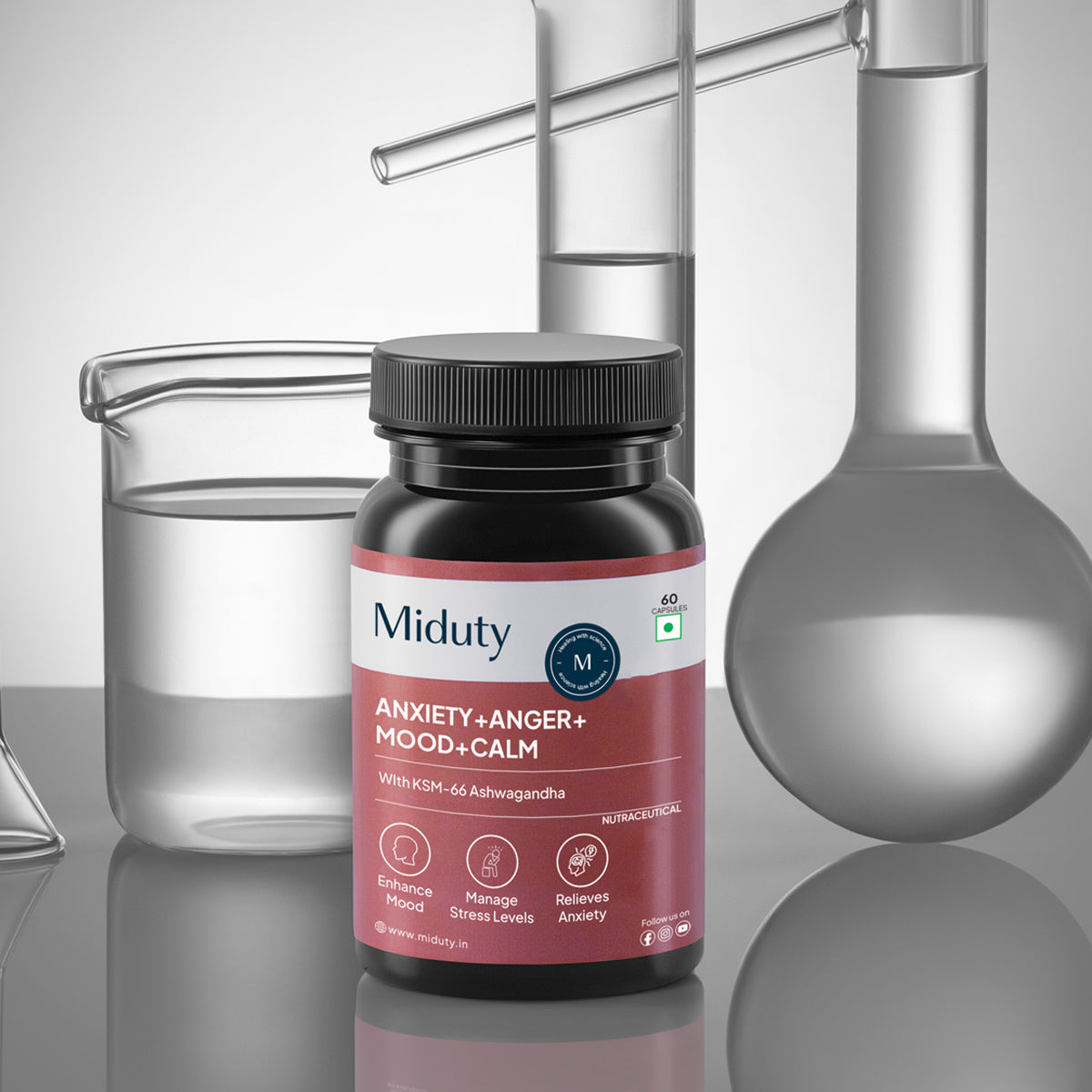
How To Sleep Fast – The Ultimate Guide to Falling Asleep Quickly
Sleep is one of life's greatest pleasures, yet so many people struggle to get enough of it. Whether it's stress, lifestyle, or technology, the reasons behind sleepless nights are endless. But guess what? Falling asleep fast doesn't have to feel like a task.
In this guide, we're going to walk you through proven, practical, and natural ways to doze off quickly and enjoy that sweet, restorative sleep your body craves.
Key Takeaways
1. Understand the Sleep Cycle: Knowing how sleep stages work helps you optimize your environment and habits for better rest.
2. Identify and Address Barriers: Stress, lifestyle choices, and screen time often disrupt sleep; take steps to manage them for faster sleep onset.
3. Create a Relaxing Sleep Environment: A cool, dark, and quiet bedroom paired with a consistent routine sets the stage for quick and restful sleep.
4. Use Proven Techniques: Practices like 4-7-8 breathing, progressive muscle relaxation, and visualization can help you fall asleep quickly.
5. Seek Professional Help If Needed: If sleep problems persist, consult a doctor—sleep disorders like insomnia and sleep apnea require professional care.
What is the Sleep Cycle?
Before we dive into the nitty-gritty of how to sleep fast, it's essential to understand what actually happens when you close your eyes. Your sleep cycle is made up of multiple stages, including light sleep, deep sleep, and REM sleep (where dreams occur). On average, each cycle lasts about 90 minutes and repeats several times a night.
Here's the thing: If your sleep cycle is disrupted, falling asleep—and staying asleep—can become a real challenge. Factors like late-night caffeine, blue light exposure from your phone, or even a noisy neighbor can throw your cycle out of whack. That's why optimizing your environment and habits is key to falling asleep fast.
Why You Might Struggle to Fall Asleep?
1 - Common Causes of Insomnia
If you have trouble falling asleep, you're not alone. Insomnia can stem from stress, pain, side effects from medications, or health issues like asthma or arthritis. Even an uncomfortable mattress or a noisy environment can sabotage your sleep.
2 - Psychological Factors (Stress, Anxiety)
Anxiety is like an uninvited guest at bedtime, filling your mind with racing thoughts about work, relationships, or money. Stress is one of the top barriers to sleep. Simple practices like mindfulness, deep breathing, or journaling can help quiet your mind.
3 - Lifestyle Factors (Diet, Screen Time)
Modern habits often clash with sleep. Late-night snacking, scrolling social media, and binge-watching TV can disrupt your sleep hormones. Heavy meals near bedtime can cause indigestion, and screen time suppresses melatonin. Power down electronics at least an hour before bed and reach for a book or herbal tea instead.
How To Create The Perfect Sleep Environment?
1 - Bedroom Setup and Comfort
Invest in a comfy mattress, cozy pillows, and soft sheets. Blackout curtains can block streetlights, and a tidy room promotes relaxation. A clutter-free space signals your brain that it's time to rest. Keep your bedroom screen-free.
2 - Ideal Room Temperature
A room that's too hot or too cold can make sleep elusive. Experts recommend keeping your bedroom between 60 and 67°F (15–19°C) for optimal sleep. Use a fan or adjust bedding until you find the sweet spot.
3 - Importance of Darkness and Noise Control
Light can trick your brain into thinking it's still daytime, disrupting melatonin production. Blackout curtains, eye masks, and covering device lights can help. Noise, too, can interfere with sleep. White noise machines or earplugs can mask sounds and create a consistent sleep environment.
Pre-Sleep Routines That Work
1 - Establishing a Consistent Bedtime Routine
Your body loves routine. Going to bed and waking up at the same time every day, even on weekends, helps regulate your sleep cycle. Wind down with a warm shower, light stretching, or gentle yoga. Avoid stimulating activities like horror movies or heated discussions before bed.
2 - Relaxation Techniques (Reading, Meditation)
Reading a physical book can help your mind slow down, while meditation calms racing thoughts. Try guided meditations or sleep apps. Even a few minutes of deep breathing can help signal to your body that it's time to sleep.
3 - Avoiding Screens and Stimulating Activities
Screens emit blue light, which suppresses melatonin and keeps you awake. Use blue-light-blocking glasses or night mode if you must use devices, but aim to power down at least an hour before bed. Skip heavy meals, caffeine, and intense exercise right before bedtime. If you're hungry, reach for a light snack like a banana or a handful of almonds.
How To Sleep Fast - 3 Proven Techniques to Fall Asleep Faster
1- The 4-7-8 Breathing Method
The 4-7-8 breathing method is a tried-and-true technique that helps you drift off in record time. Here's how it works: you inhale through your nose for 4 seconds, hold that breath for 7 seconds, and then exhale slowly through your mouth for 8 seconds. Repeat this cycle at least four times (or until you feel drowsy).
What makes this technique so effective? It slows your heart rate and calms your nervous system, shifting your body from fight-or-flight mode to rest-and-digest mode. Think of it as a natural sedative, no pills required! Practice it every night, and your body will learn to associate this breathing rhythm with sleep, making it easier to fall asleep fast.
2 - Progressive Muscle Relaxation
Ever notice how tense your shoulders get after a stressful day? That tension can sneak into bed with you and sabotage your sleep. Progressive muscle relaxation is a technique that helps you release that tension, one muscle group at a time.
Start at your feet and work your way up, tensing each muscle group for a few seconds and then letting it go completely. You'll be amazed at how this simple exercise can melt away stress and make you feel like you're floating on a cloud. It's a great way to distract your mind from worries and tune into your body's natural relaxation cues.
3 - Visualization Exercises
Picture this: you're lying on a beach, listening to the waves, with the sun gently warming your skin. Sounds dreamy, right? Visualization exercises tap into the power of your imagination to help you relax and fall asleep. By focusing on calming mental images, you shift your brain's attention away from stress and toward serenity.
Try imagining yourself in a peaceful place—like a forest, a lake, or even a cozy cabin—and engage all your senses: what do you see, hear, smell, and feel? This mental escape can lull your mind into a state of relaxation, making it easier to drift off.
Lifestyle Changes That Improve Sleep
1 - Diet and Hydration Tips
Your diet doesn't just affect your waistline; it also has a big impact on your sleep. Eating heavy, spicy, or greasy meals right before bed can lead to indigestion and restless nights. Instead, opt for a light snack like a banana, which contains magnesium and potassium—minerals that help relax your muscles and promote sleep.
Hydration matters too. Dehydration can cause dry mouth and leg cramps, both of which can keep you awake. But don't go overboard—too much liquid before bed can lead to midnight bathroom runs. Aim for balance: drink water throughout the day and cut back an hour before bedtime.
2 - Exercise and Its Effects on Sleep
You've probably heard that exercise is good for sleep, and it's true. Regular physical activity can help you fall asleep faster and enjoy deeper sleep. But timing is everything. Intense workouts right before bed can actually have the opposite effect, leaving you too energized to sleep.
Aim for moderate exercise (like a brisk walk, yoga, or swimming) earlier in the day or at least 3 hours before bedtime. This gives your body enough time to cool down and transition into sleep mode.
3 - Managing Caffeine and Alcohol Intake
We love our morning coffee as much as anyone, but caffeine is a notorious sleep disruptor. Even that afternoon latte can linger in your system for hours, making it harder to wind down at night. Try to avoid caffeine at least 6 hours before bed—or switch to herbal tea in the evening.
And let's talk about alcohol. A nightcap might make you feel drowsy, but it actually disrupts your sleep cycle, leading to fragmented, lower-quality sleep. If you want to sleep fast and stay asleep, it's best to keep alcohol to a minimum.
Natural Alternatives For Better and Faster Sleep
1 - Herbal Teas and Supplements
If you're looking for a natural way to catch some Z's, herbal teas and supplements can be a game-changer. Chamomile tea, for example, has mild sedative properties that help you relax. Valerian root is another popular choice, though it has a stronger taste and smell that some people find off-putting.
Magnesium supplements can also promote relaxation, especially if you're prone to muscle cramps or restless legs. Just remember: natural doesn't always mean safe. Talk to a healthcare professional before starting any new supplement, especially if you're on medication or have health concerns.
2 - Aromatherapy and Essential Oils
Scents like lavender, chamomile, and sandalwood are known for their calming effects. Using a diffuser or dabbing a few drops of essential oil on your pillow can help create a relaxing environment that signals your body it's time to sleep.
Don't underestimate the power of your sense of smell—it's directly connected to the limbic system, the part of your brain that regulates emotions and relaxation. Just make sure to choose high-quality, pure essential oils and use them safely (always dilute before applying to the skin).
When to Seek Professional Help?
1 - Signs of Sleep Disorders
Sometimes, despite your best efforts, sleep problems persist. If you're consistently struggling to fall asleep, waking up frequently during the night, or feeling exhausted during the day, it might be time to seek professional help.
Conditions like sleep apnea, restless legs syndrome, or chronic insomnia require medical evaluation and treatment. Don't hesitate to talk to your doctor—sleep is too important to ignore.
2 - Cognitive Behavioral Therapy for Insomnia (CBT-I)
If stress or anxiety is at the root of your sleep issues, Cognitive Behavioral Therapy for Insomnia (CBT-I) is considered the gold standard. This therapy helps you identify and change negative thought patterns and behaviors that keep you from sleeping.
Unlike sleeping pills, CBT-I treats the underlying causes of insomnia and teaches you long-term skills to improve sleep. It's usually delivered by a trained therapist over several sessions, and many people see significant improvement after just a few weeks.
Myths and Facts About Falling Asleep Fast
|
Myth |
Fact |
|
Alcohol Helps You Sleep Better |
While a nightcap might make you drowsy, alcohol disrupts the sleep cycle and reduces sleep quality, leading to early morning wakefulness. |
|
More Sleep Means Better Sleep |
Quality matters more than quantity. Getting 7–9 hours of uninterrupted, deep sleep is more beneficial than spending 10 hours tossing and turning. |
|
You Can Catch Up on Sleep Over the Weekend |
Sleeping in on weekends disrupts your sleep-wake cycle, making it harder to fall asleep quickly during the week. |
|
Screens Don't Affect Sleep If You Use Night Mode |
Night mode reduces blue light, but screens still stimulate the brain, delaying sleep onset. Limiting screen time before bed is best. |
|
You Should Stay in Bed Until You Fall Asleep |
If you can't sleep after 20 minutes, get up and do something relaxing. Staying in bed awake can link your bed to insomnia. |
Boost Your Sleep Naturally with Supplements
Even with the best sleep habits and relaxation techniques, sometimes your body needs a little extra support to wind down. That's where natural sleep supplements can help.
Sleep Well is designed to complement your sleep routine with ingredients that promote calmness and restful sleep. It contains a blend of time-tested herbs and nutrients known for their relaxing effects on the mind and body.
Unlike prescription sleeping pills that can leave you feeling groggy, Sleep Well works with your body's natural rhythms to help you fall asleep faster and wake up refreshed. If you're looking to enhance your sleep quality and build a consistent, healthy sleep cycle, consider adding Sleep Well to your nightly routine.
Conclusion
Falling asleep fast is more than just a dream—it's a skill you can learn and master. By understanding your sleep cycle, creating a relaxing bedtime routine, and making small lifestyle changes, you can transform your nights from restless to restful. Remember, good sleep hygiene is the foundation of better sleep. So start implementing these tips tonight and get ready to drift off faster than ever before. Sweet dreams!
Frequently Asked Questions on How To Sleep Fast -
Q1 - How do I sleep fast right now?
If you want to fall asleep quickly, try Progressive Muscle Relaxation (PMR), where you tense and then release different muscle groups while taking deep breaths. Another effective method is the 4-7-8 breathing technique, breathe in for 4 seconds, hold for 7 seconds, and exhale slowly for 8 seconds.
Q2 - What is the 10 3 2 1 0 rule for sleep?
The 10-3-2-1-0 sleep rule is a simple routine designed to help you sleep better by following certain steps before bed. It recommends cutting off caffeine 10 hours before sleeping, stopping food and alcohol intake 3 hours prior, wrapping up work 2 hours before bed, avoiding screens 1 hour before sleep, and skipping the snooze button in the morning.
Q3 - How to sleep fast in 5 minutes trick?
The 5-minute sleep trick, known as the Military Method, helps you fall asleep fast by relaxing your body step-by-step and quieting your mind. It involves releasing tension from specific muscle groups while using calming visualizations or repeating simple phrases to prevent racing thoughts. You can also check out our detailed guide on how to sleep fast in 5 minutes for a step-by-step solution that helps you relax your body and mind more effectively.
Q4 - How do I force myself to sleep fast?
To fall asleep quickly, prioritize calming your body and mind before bed. Stick to a regular sleep schedule, build a soothing nighttime routine, and make your sleep environment cool, dark, and quiet. Steer clear of screens, caffeine, and any stimulating activities in the evening.
Q5 - What is the 54321 method of sleep?
The 5-4-3-2-1 method is a grounding technique designed to ease anxiety and support better sleep. It works by engaging your senses naming 5 things you see, 4 you can touch, 3 you hear, 2 you smell, and 1 you can taste, helping shift focus away from anxious thoughts.
References
| Sr. No. | Reference Links |
| 1. | Sleep Phases and Stages |
| 2. | Insomnia: A Sleep Disorder |
| 3. | 3 Breathing Exercises to Relieve Stress |
| 4. | |
| 5. |













